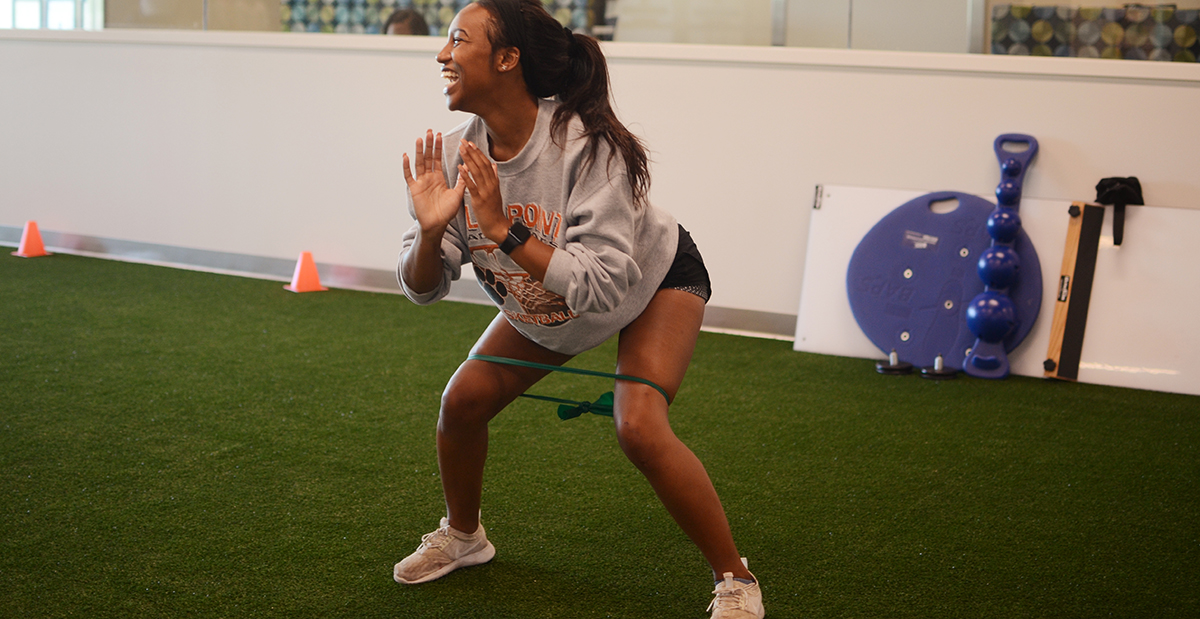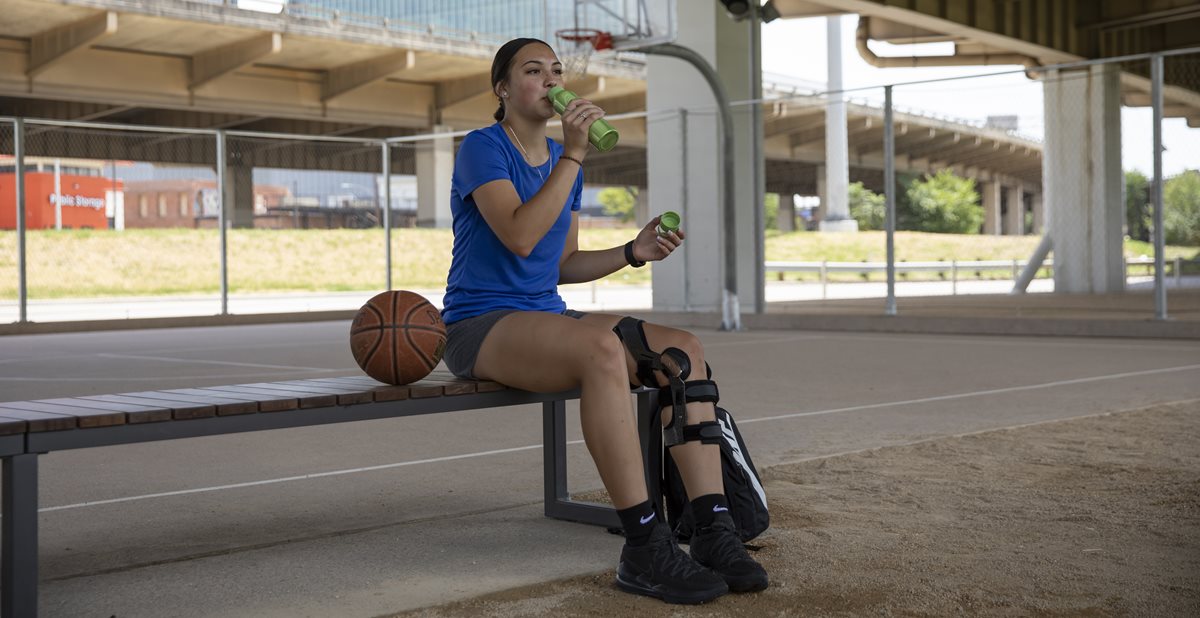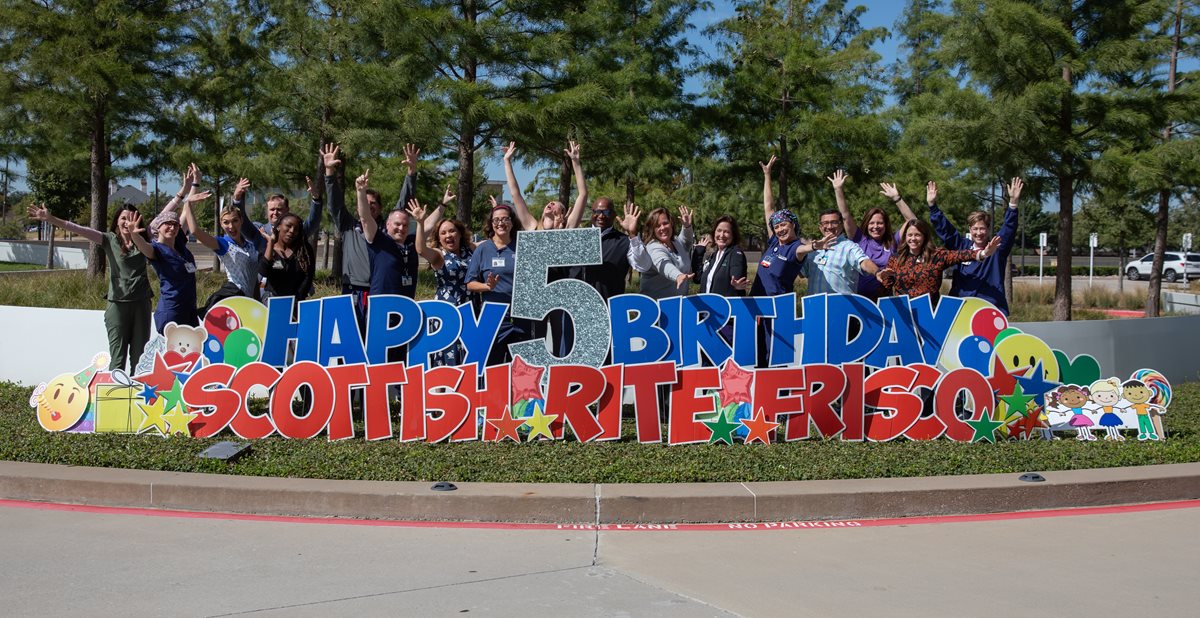
Jan 14, 2021 / Sports Medicine
Return to Sports: When is it Safe?
Functional Testing in Pediatric Sports Medicine
Our team uses the latest research to decide when it is safe for an athlete to return to sports after an injury. We have selected specific tests to help predict who is most likely to have another injury on the same or opposite leg.
Recent studies have shown that:
As the athlete recovers, exercises will become more difficult. The last stage of rehabilitation is often called “functional training.” Functional training includes movements that mimic sports, such as jumping and landing. After an injury or surgery, formal rehabilitation with a physical therapist may end before the athlete is ready to return to sports. For these athletes, a bridge program is an ideal way to continue functional and sport-specific training after therapy.
Functional Testing
Functional tests assess how well an athlete can perform sport-like movements. The results can help predict who is at risk of re-injury. Timing of testing is dependent upon the healing of the tissue as well as the athlete’s readiness to perform the sport-like tests. Success is often dependent upon the athlete’s commitment to rehabilitation from early stages through sport-specific training. It is not uncommon for a young athlete to need additional time or training to successfully pass after a first attempt.
Watch to learn more about functional testing at Scottish Rite for Children.
Scottish Rite for Children
Laura Saleem, P.T., M.P.T., O.C.S., manager of Therapy Services at our Frisco campus, is passionate about helping these athletes return to their sport. "When working with young athletes, our sports-focused physical therapists use the latest evidence in injury prevention when rehabilitating an athlete with the intention of returning to sports," says Saleem. From day one, the therapist is encouraging the athlete to prepare for return to the field, court or rink. With the addition of experienced strength and conditioning coaches on our team, we offer a smooth transition from injury back to sports.
Learn more about our Bridge Program for our patients at Bridge.Program@tsrh.org or call Therapy Services in Frisco at 469-515-7150.
Our team uses the latest research to decide when it is safe for an athlete to return to sports after an injury. We have selected specific tests to help predict who is most likely to have another injury on the same or opposite leg.
Recent studies have shown that:
- athletes are at the greatest risk of re-injury in the first 12 months after surgery.
- younger athletes have a harder time recovering control of the injured leg after surgery.
- rehabilitation that includes functional training leads to a lower risk of re-injury after returning to sports.
- age
- sex
- competition level
- sport and position
- when the injured or reconstructed tissue is ready for certain activities
- if the athlete can perform specific movements common in sports.
As the athlete recovers, exercises will become more difficult. The last stage of rehabilitation is often called “functional training.” Functional training includes movements that mimic sports, such as jumping and landing. After an injury or surgery, formal rehabilitation with a physical therapist may end before the athlete is ready to return to sports. For these athletes, a bridge program is an ideal way to continue functional and sport-specific training after therapy.
Functional Testing
Functional tests assess how well an athlete can perform sport-like movements. The results can help predict who is at risk of re-injury. Timing of testing is dependent upon the healing of the tissue as well as the athlete’s readiness to perform the sport-like tests. Success is often dependent upon the athlete’s commitment to rehabilitation from early stages through sport-specific training. It is not uncommon for a young athlete to need additional time or training to successfully pass after a first attempt.
Watch to learn more about functional testing at Scottish Rite for Children.
Scottish Rite for Children
Laura Saleem, P.T., M.P.T., O.C.S., manager of Therapy Services at our Frisco campus, is passionate about helping these athletes return to their sport. "When working with young athletes, our sports-focused physical therapists use the latest evidence in injury prevention when rehabilitating an athlete with the intention of returning to sports," says Saleem. From day one, the therapist is encouraging the athlete to prepare for return to the field, court or rink. With the addition of experienced strength and conditioning coaches on our team, we offer a smooth transition from injury back to sports.
Learn more about our Bridge Program for our patients at Bridge.Program@tsrh.org or call Therapy Services in Frisco at 469-515-7150.



